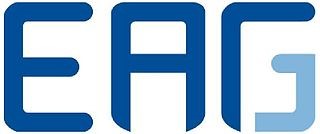-

01 April, 2013
In February 2012 the new FATF Standards on combating money laundering, financing of terrorism and the financing of the proliferation of weapons of mass destruction have been adopted.
The Standards are aimed at strengthening the stability of the global financial system, at ensuring its transparency and safety.
The Eurasian group on combating money laundering and financing of terrorism (EAG), as a FATF Style Regional Body, carries out active work on clarification and implementation of provisions of the FATF forty recommendations into the national legislation and enforcement practice of its member-states.
To that end, in March 12-14, 2013, the international workshop on the issues of the new Standards was conducted with participation of the FATF Vice-President Mr. V. Nechaev.
Participants of the workshop, having detailed discussions of the major novation in the sphere of combating money laundering and financing of terrorism, related to the implementation of the risk-based approach, inclusion of the tax crimes into the list of predicate offences, enhancing the mechanisms of financial monitoring to combat corruption, increasing the level of transparency regarding the beneficial ownership information, strengthening the interagency coordination and international cooperation, consider it appropriate:
1. To continue the work on examination of risk assessment practices at the national level and interagency coordination when the assessment is being conducted, in order to establish the general approach in the Eurasian region.
2. To study and consider the possibility of dissemination to the EAG member-states the practice of the Republic of Uzbekistan concerning the regulation of circulation of the cash in foreign currency, as a mechanism to increase the transparency of financial flows and to enhance the control of cross-border transportation of cash and valuable items, and also the practice of detection of the illegal proceeds generated through tax crimes. To recommend Uzbekistan to inform the EAG Plenary of its experience concerning the issues mentioned.
3. To activate in the EAG member-states consultations with the private sector concerning the issues of implementation of the FATF requirements related to combating the corruption, including the mechanisms of financial monitoring of transactions involving domestic politically exposed persons.
4. To consider the possibilities of carrying out similar workshops during the second half of 2013 and in 2014 and to include respective proposals into the EAG Calendar and the EAG Action Plan.
5. To the EAG Secretariat to consult with the FATF and other FATF Style Regional Body Secretariats concerning the issues of preparation for the next round of mutual evaluations within the Eurasian group, including the experts/assessors training.

 Login to your account
Login to your account Eng
Eng Рус
Рус